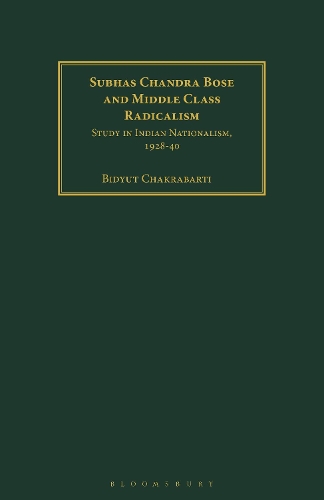
Subhas Chandra Bose and Middle Class Radicalism: Study in Indian Nationalism, 1928-40
(Paperback)
Publishing Details
Subhas Chandra Bose and Middle Class Radicalism: Study in Indian Nationalism, 1928-40
By (Author) Bidyut Chakrabarti
Bloomsbury Publishing PLC
Bloomsbury Academic
23rd September 2021
United Kingdom
Classifications
Tertiary Education
Non Fiction
Asian history
320.954092
Physical Properties
Paperback
256
Width 156mm, Height 234mm
363g
Description
Subhas Chandra Bose is notorious in Britain - and famous in India - because he led the Indian National Army, which was armed by the Japanese to fight against the British in World War II. As a result, Indian studies of his part in the independence movement have tended to be hagiographic. This book takes a critical look at Boses political role before the INA episode, when in the 1920s and 1930s he represented radical and militant nationalism with the young Jawaharlal Nehru. Subhas Chandra Bose was a prominent Bengali political leader. Twice president of the Indian National Congress, on the second occasion he was elected in preference to Gandhis own nominee. He successfully challenged Gandhis leadership at both the central and regional level. He provided a broad platform for all those who opposed Gandhi and Gandhism. In Bengal he succeeded for a time in securing an alliance between the communists and the Islamic Krishak Praja Party (KPP). Though Bengal itself was at the heart of the struggle within the nationalist movement between Gandhians and socialists, until now, no detailed study has been made of political developments there. In this book the author examines the importance of Boses militancy in the nationalist movement, how middle class radicalism developed in Bengal, and why in the end its inherent contradictions doomed it to failure.
Author Bio
Bidyut Chakrabarty is a political sociologist. He gained his doctorate at the LSE. He has taught in the United States and India.
